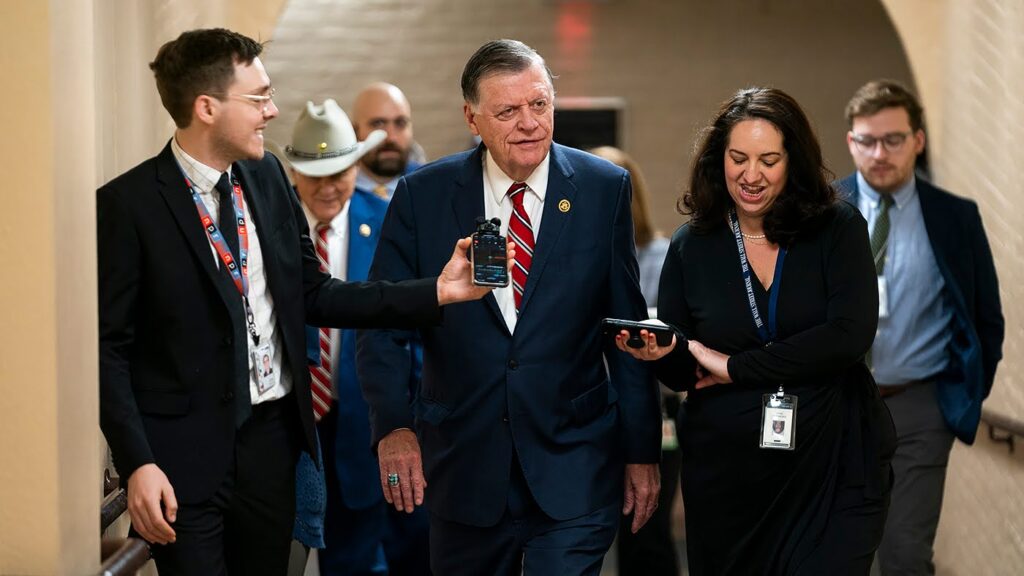
Summary of House Fiscal Year 2019 Transportation, Housing and Urban Development Appropriations Bill
On May 16 the House Appropriations Subcommittee on Transportation and Housing (THUD) passed, by voice vote, its funding bill for fiscal year 2019 (FY19). Under this bill, the U.S. Department of Transportation is funded at $71.8 billion for FY19. This is $1.5 billion above the FY2018 enacted level. The full House appropriations committee is expected to markup the bill on May 23.
The following is a brief summary of key parts of the bill.
Capital Investment Grants (CIG)
The bill provides $ 2.614 billion for CIG, a 0.5 percent increase over the FY18 enacted level. The bill requires the U.S. Department of Transportation (USDOT) to advance projects through the pipeline and to obligate $2.222 billion by the end of 2020. In addition, the bill directs the Trump Administration to reissue the FY19 Report to Congress with allocations for projects. The bill allocates CIG funding as follows:
- Existing New Starts full-funding grant agreements (FFGA): $836 million
- Additional New Starts projects (e.g. in project engineering, project development phases): $500 million
- Core Capacity projects with FFGAs: $200 million
- Additional Core Capacity projects: $550 million
- Small Starts projects: $502 million
BUILD
The bill directs $750 million to Better Utilizing Investments to Leverage Development (BUILD) grants (formerly known as the Transportation Investment Generating Economic Recovery (TIGER) grant program). This allocation represents a 50 percent reduction in funding compared with the FY18 enacted funding level of $1.5 billion; however, it is a 50 percent increase in funding for the program when compared to historic funding trends for TIGER that have generally been appropriated for $500 million annually.
The funding is allocated as follows:
- Projects in rural areas (below 200,000 in population): $250 million
- Projects in urbanized areas (above 200,000 in population): $250 million
- Projects at seaports or intermodal facilities: $250 million
Historically, funding for the TIGER/BUILD program has not been apportioned by geography or mode by statute, though there has been a mandatory set aside for rural projects and a requirement for geographic diversity. Historically grants have been distributed across all modes and a broad geography of the county.
The bill requires USDOT to conduct a new competition to select projects to fund. USDOT must issue a NOFO within 60 days of enactment of the appropriation, set a deadline for applications within 90 days of enactment, and award grants within 270 days of enactment.
The bill prohibits USDOT from using federal share of project funding as a selection criteria.
The bill also sets the minimum BUILD award at $5 million and the maximum at $25 million.
Highway programs
The bill obligates $45 billion from the Highway Trust Fund for Federal-Aid Highway programs, as authorized by the FAST Act. The bill appropriates an additional $4.25 billion from the general fund to highway programs. This additional funding is allocated to:
- Construction of highways, bridges, and tunnels: $3.812 billion
- Highway safety improvement projects: $250 million
- Puerto Rico Highway Program: $31 million
- Territorial Highway Program: $8 million
- Tribal Transportation Program: $50 million
- Nationally Significant Federal Lands and Tribal Projects Program: $100 million
These amounts are apportioned to the states, tribes, and territories through the same formulas as funds from the Highway Trust Fund.
The supplemental General Fund allotment for highway safety improvement projects is exempted from the high-risk rural road safety rule that requires states to direct additional funds to rural highway safety projects if the fatality rate on rural highways increases.
Transit grants
The bill appropriates $9.9 billion from the Mass Transit Account of the Highway Trust Fund to transit formula programs, as authorized by the FAST Act. The bill provides an additional $800 million from the general fund for transit capital grants, allocated to:
- Bus and Bus Facilities: $350 million (of which $50 million is for No and Low Emission Buses)
- State of Good Repair: $200 million
- Rural formula grants (Section 5311): $50 million
- Urbanized area formula grants (Section 5307): $150 million
- Growing States and High Density States formula grants (section 5340): $50 million
Rail
Rail infrastructure and safety programs are funded at $3.2 billion, $63 million over the FY18 enacted level. The bill provides a total of $1.9 billion for Amtrak, of which $650 million is for the Northeast Corridor and $1.3 billion is to support the national network. The bill also provides $221 million to fund FRA’s safety, operations, research and development activities. The Consolidated Rail Infrastructure and Safety Improvement (CRISI) Grants Program is funded at $300 million, of which $150 million is for Positive Train Control. The Federal-State Partnership for State of Good Repair Grants program is funded at $500 million and the Restoration and Enhancement Grants program is not funded.
Looking ahead: Senate
The Senate THUD subcommittee is expected to consider its own FY19 funding bill the week of June 4.
For questions or more information, please contact Scott Goldstein at scott.goldstein@t4america.org or 202-971-3911.



